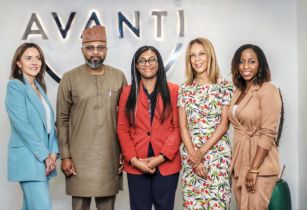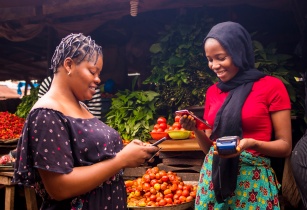A Cultural Economies Conference will take place from 5-6 September, presented by the Goethe-Institut South Africa in Johannesburg’s Tshimologong Digital Innovation Precinct, as part of the Fak’ugesi African Digital Innovation Festival running from 30 August-8 September 2019
The Fak’ugesi African Digital Innovation Festival aims to explore and celebrate technology and creativity by Africans for Africa. This year, the Festival has cast its central theme as ‘Own Your Force’ which invites digital makers in Africa to stake their claim on their talent, industry and creative economy.
In the spirit of this year’s festival theme, the Cultural Economies Conference will bring together a spectrum of contributors within the cultural and creative industries (CCI). From practitioners to policymakers, the programme will critically engage with the ecosystems and economies of local and continental CCI contexts.
The Cultural Economies Conference will feature future-focused and solutions-driven sessions that unpack the possibilities that tech and innovation offer the creative sector, with the interrogation of topics such as the changing nature of storytelling and blockchain as highly anticipated highlights.
“Stakeholders from across the CCIs are invited to take part in this exciting opportunity for engagement; in the hopes that they will be able to gain insight into the thinking of the CCI around their practice, realities and visions, particularly from an African and future-focused perspective,” explained Bandile Gumbi, project manager at Cultural Economies Conference.
As a conference through-line, Colliding Ecosystems explores the spaces of increasing overlap between the creative and digital industries; in particular, taking into account the different contexts and ecosystems in which entrepreneurs need to be able to operate effectively. Economies Of Trust considers what these ecosystems are and need to be, in order to support ‘makers’, who often find themselves needing to both produce within, as well as be, the ecosystems for their work.
The conference will also interrogate socially orientated vs traditionally capitalist approaches in the context of (intellectual) property ownership and the crossover between the fourth industrial revolution and the cultural and creative industries. In a session looking at Ecosystems of Tech-Knowledge-y, a panel of practitioners will offer their scene-setting perspectives on the intersections between the CCI and digital ecosystems. A look at the legal, policy and communications Frameworks in which these sectors are required to operate hopes to clarify perspectives on pertinent issues.
In addition, a deeper consideration of the Changing Currencies operating in these new economic contexts requires looking at social (as) currency in the 4IR, and the investment required to operate in these changing marketplaces. These ideas are mined in a conversation around ‘Communications as the currency of the digital economy’. A session on ‘Storytelling as Africa’s value proposition’ will unpack suggestions for dismantling power structures and hierarchies of visual storytelling across genres and media. Additional engagement will be driven by tech-facilitated creative solutions and mechanisms for digital innovation for the creative sector; including how tech solutions are changing the game, using blockchain, smart contracts and digital copyright solutions.
Lesley Williams, CEO of Tshimologong Digital Innovation Precinct, which will host the Fak’ugesi Festival for a sixth year says the precinct is a natural meeting point for the digital arts community in Africa and across the globe. “This is where African digital artists interact with counterparts from around the world, collaborate around best practice and create something truly memorable,” she says.
The 2019 Cultural Economies Conference is supported by, and presented on behalf of the German Federal Ministry for Economic Cooperation and Development (BMZ), the GIZ (Deutsche Gesellschaft für Internationale Zusammenarbeit (GmbH)) and the Goethe-Institut to promote the emerging market of cultural and creative industries in Africa and in the Middle East.



































